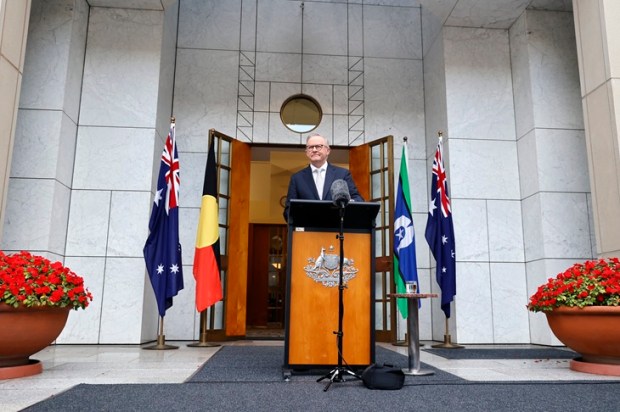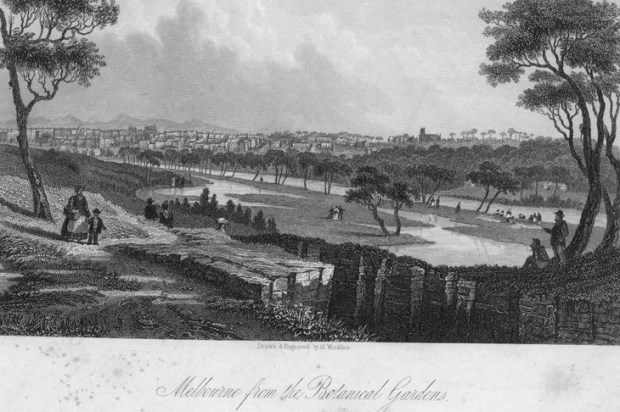I have long believed that growth, prosperity, progress, and ultimately personal fulfillment are not created by government or any group of the governing class. These high aims can only be achieved by private ambition and personal effort. It is only by enjoying our triumphs and learning from our mistakes that we grow as citizens who can make our democracy flourish. Self-interest is one of mankind’s most powerful motivators and any government regulation that suppresses self-interest curtails national progress. Excessive taxation across often overlapping fields of human endeavour, stunt self-interest and truncate productive enterprise.
According to the Henry Review of taxation, Australia has about 125 different taxes. To name just a few, we currently have: income tax, company tax, sales tax, payroll tax, land tax, carbon emissions tax, fringe benefits tax, capital gains tax, goods and services tax, luxury car tax, federal excise on fuel, alcohol, tobacco, and then, of course, we have the iniquitous registration fees for everything from the butcher to the brothel.
With such stifling regulation and burdensome pilfering of the hard-won profits on our investments and labour, it is not surprising that our economy is at best sluggish and likely to go into recession later this year. With an economy so burdened with regulation and taxation there is no incentive for entrepreneurs and investors to take the risks required for genuine expansion via the development of new ideas.
For Australians to aggressively become more competitive in our industries they must have ready access to our vast resources and then have the basic inputs to all production. Those inputs are power, water, gas, and labour. It is these basic seeds of production that recent governments have made scarce and expensive.
Sadly, as we look at most (or all) Western democracies, we see growing taxpayer-funded bureaucracies as political parties gain office by offering the people more and more of ‘other people’s money’. Many of these promised handouts will never be delivered because governments are still scrounging to deliver and pay for previous vote-buying undertakings. As this stay in office at any cost continues, budgets are blown, borrowings increase, and previously healthy economies are headed for bankruptcy.
This situation was correctly forecast by French political theorist Alexis de Tocqueville nearly 200 years ago when he predicted:
‘Democracy will only exist until the voters discover that they can vote themselves largesse from public treasury. From that moment on the majority will always vote for candidates promising the most benefits.’
That day of reckoning has arrived as governments like Australia are forced to increase taxation to pay for run-away welfare payments and increasingly expensive costs of sophisticated defense spending. While scrambling to meet voters’ expectations, governments like Australia lack the nous to effectively plan for and implement policies that would increase productivity and as a result, government receipts. They are too busy putting out the fires excessive spending to influence prudence. They haven’t yet found the spending brake but continue to race the Australian economy truck down a very steep hill towards the creek of insolvency.
That the solution to Australia’s (and other Western economies’) fiscal problems lie in smaller government, not larger and more complex government, has not to date been countenanced. Only when we increase the number of taxpaying jobs and decrease the number of taxpayer-funded jobs can we begin the seemingly impossible task of bringing the budget back into credit. The road to fiscal responsibility and budget repair relies on reducing the share of all spending by government. Just between the years 2013-22 the percentage of government spending to GDP has risen from 24 per cent to over 35 per cent. That is a rise of over 47 per cent in just 9 years, or over 5 per cent a year.
What you may ask is this money being spent on?
I would suggest that most of it is on vote buying to keep the government in power. As a result of this squandering of taxpayer funds, the good old Aussie economy truck is now out of control with no one apparently at the wheel headed for a devastating fiscal crash. This crash can be avoided, but only by reducing government spending. Coupled with this we need to remove most government regulation and give our people the freedom to be their best at their own expense.
Is government the answer? The answer is a resounding no. Government is the problem, and the more government and their growing army of bureaucrats interfere in commercial activity the less productive and less self-reliant we will be.
We could with little downside halve the number of so-called public servants as well as do away with one tier of government. We know this is possible because we only have to look to New Zealand where there is but one tier of government where we have three.
The battle to implement visionary policy and make Australia great is going to be won in the hearts and minds of the men and women who care most about our future, because they have most at stake in our future. These people know what government doesn’t. Productivity cannot be mandated; it can only be fostered and government should get the hell out of the way. Productivity is never an accident. It comes from a commitment to succeed, built on the rock of intelligent planning and personal effort.
Such lofty aims are never going to emanate from those only interested in re-election and the perks of office.
Government is the problem, not the answer.

























